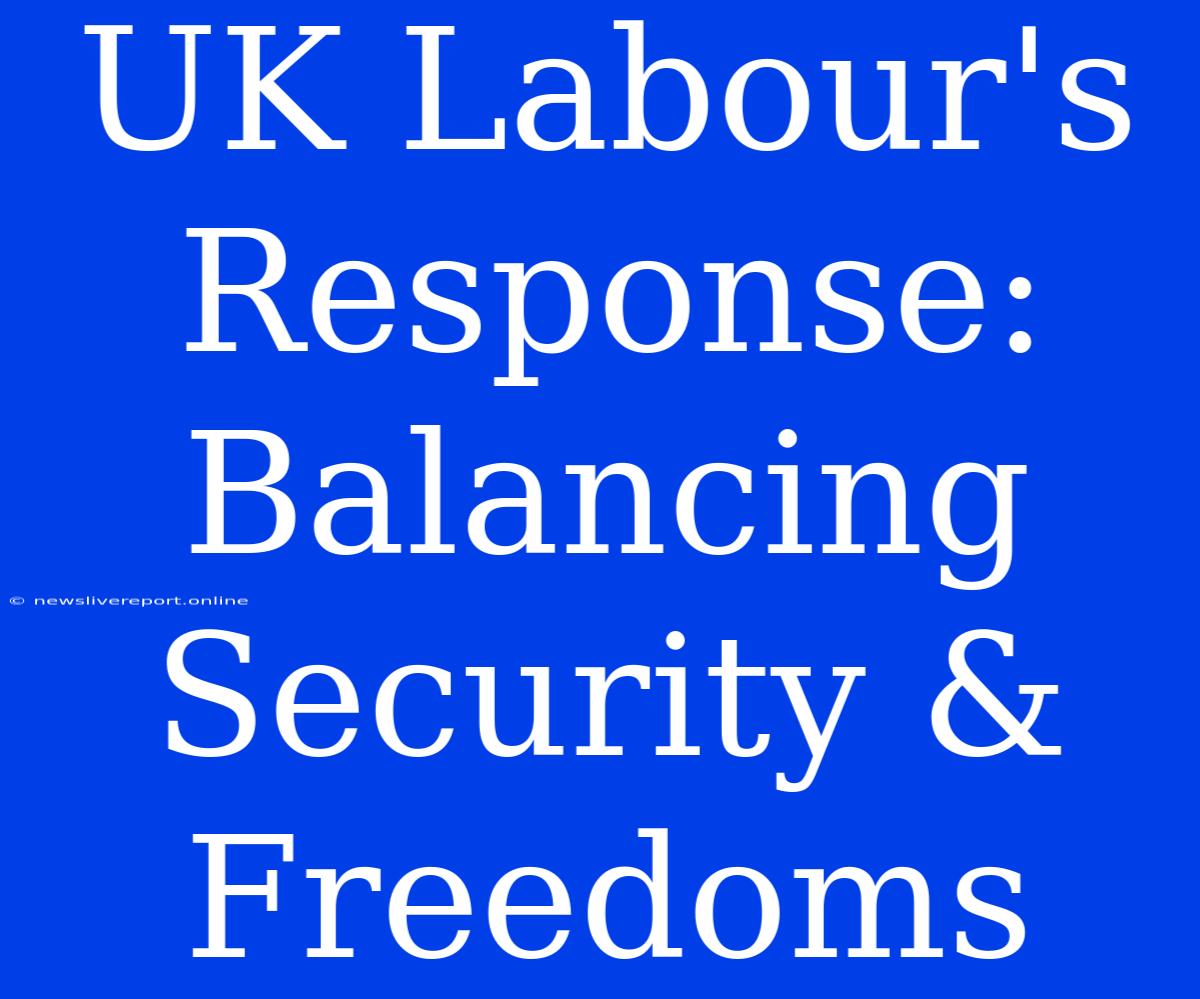UK Labour's Response: Balancing Security & Freedoms
The UK Labour Party has been grappling with the complex issue of balancing national security with individual freedoms. Recent events, including the rise of terrorism and the increasing use of surveillance technology, have brought this dilemma to the forefront of political debate.
Labour's Stance: A Fine Line
Labour, under the leadership of Keir Starmer, has navigated a careful path, recognizing the need for both robust security measures and the protection of civil liberties. This approach has been met with mixed reactions, with some accusing the party of being too soft on security, while others criticize its perceived limitations on freedom.
Here's a breakdown of Labour's key positions:
1. Countering Terrorism:
- Labour has consistently emphasized the need for strong counter-terrorism measures, including increased police powers and intelligence gathering.
- They support the use of pre-charge detention, arguing that it is necessary to prevent attacks, but advocate for its use only in exceptional circumstances.
- Labour has also voiced support for the use of surveillance technology, but with strong safeguards to protect privacy and prevent abuse.
2. Maintaining Civil Liberties:
- Labour is deeply committed to protecting fundamental freedoms, including the right to privacy, freedom of expression, and freedom of assembly.
- They have expressed concerns over the erosion of civil liberties in the name of security, advocating for greater transparency and accountability within the security services.
- Labour has pushed for reforms to the Investigatory Powers Act, arguing for stricter oversight and clearer legal frameworks for data collection.
3. Balancing Act:
- Labour acknowledges the tension between security and freedom, arguing that it is possible to achieve both.
- They believe in a "proportionate" approach, where security measures are only employed when they are genuinely necessary and do not unduly infringe on individual rights.
- Labour's strategy relies on robust oversight mechanisms, independent scrutiny, and a commitment to transparency and accountability.
A Complex Landscape
The debate surrounding security and freedoms is not straightforward. Critics argue that Labour's focus on civil liberties makes it appear weak on security. Conversely, supporters maintain that Labour's balanced approach strikes the right chord, ensuring that the UK can maintain its security without sacrificing its democratic values.
Looking ahead, Labour will need to navigate this complex issue carefully. They must demonstrate a firm commitment to national security while remaining vigilant in protecting fundamental freedoms.
This approach will require a careful balancing act, ensuring that the UK can effectively address security threats without undermining the rights of its citizens. The success of this balancing act will likely shape the party's future and impact its ability to win over voters.

